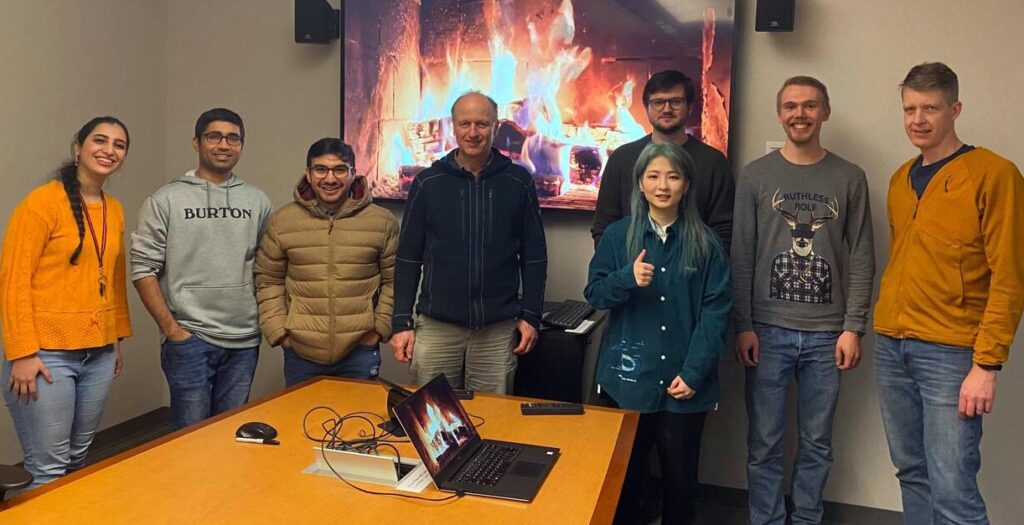Investing in the Future

Simon Fraser University’s SARlab group. Dr. Bernhard Rabus (centre).
aiRadar Inc., together with MDA Systems Ltd. (MDA) and the Canadian Space Agency (CSA), is co-funding an NSERC Industrial Research Chair in Synthetic Aperture Radar (SAR), which is attached to the School of Engineering Science at Simon Fraser University (SFU), Burnaby, B.C. The Chair is currently held by Dr. Bernhard Rabus, a professor at the SFU School of Engineering.
Dr. Rabus’ research program is deeply involved with its industry partners, MDA, aiRadar and the CSA. MDA has been a leader in SAR technologies for several decades, with comprehensive expertise ranging across mission and system design, development of space and ground segments, operations, SAR processing, calibration and applications. MDA, aiRadar and CSA also provide access to their research network as in-kind support. The goals of the NSERC Alliance research program aligns strongly with the objectives and strategic priorities of the CSA and the development of STEM in the field of advanced engineering and SAR technology. This partnership fosters the continuing development of space researchers and trainees in Canada and increases the emphasis on radar research and training at SFU, and employment opportunities in industry.
The SAR Chair program will have a pronounced impact on MDA, aiRadar and related industries by creating relevant intellectual property, publicly promoting research achievements, and by training job-ready high qualified personnel. The CSA will benefit from the Chair’s advice on collaborative research with the space-industry sector and on parameters for future space missions.
The NSERC Alliance SAR Chair program also aims to promote women in science by connecting engineering science with other disciplines such as Earth sciences, which have a more equal gender ratio among students; drawing Earth sciences students to engineering topics will improve gender equality in engineering.
